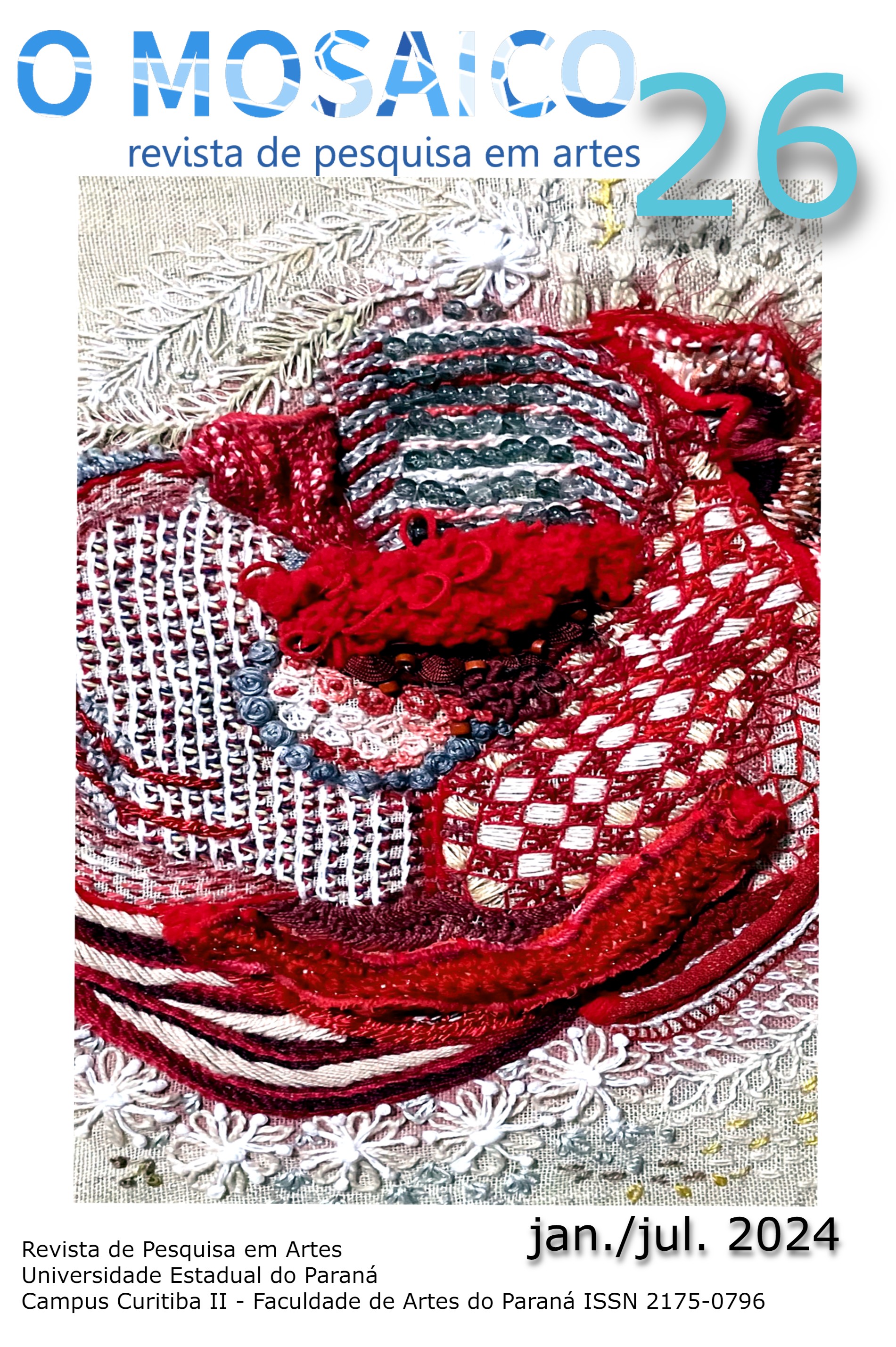Martelo and Mateus
principles for presence in embodied knowledge
DOI:
https://doi.org/10.33871/21750769.2024.18.1.9241Keywords:
Cavalo Marinho; play; state; presence; embodied knlowledgeAbstract
The text develops a study of the Pernambuco’s Cavalo Marinho, focusing on the figure of Mateus from the performance and thinking of Martelo (Sebastião Pereira de Lima), from Condado/PE. The aim was to identify principles contained in the execution of the show that could help to understand a state of presence and play that is powerful in the performance for the public space, where unpredictability is a determining factor.
Downloads
Download data is not yet available.
Downloads
Published
2024-06-25
How to Cite
Caldas Lewinsohn, A. (2024). Martelo and Mateus: principles for presence in embodied knowledge . O Mosaico, 18(1), 1–26. https://doi.org/10.33871/21750769.2024.18.1.9241
Issue
Section
Especial
License
Copyright (c) 2024 O Mosaico

This work is licensed under a Creative Commons Attribution-NonCommercial-ShareAlike 4.0 International License.
The authors retain the copyright, when licensing their production in the journal O Mosaico, which is licensed under a Creative Commons license. When submitting the work, and upon acceptance, the author assigns his/her copyright for publication in the journal. Readers can download, print and use the articles published in the journal, as long as there is always an explicit mention to the author (s) and to the O Mosaico, and no changes to the original work are allowed. When submitting an article to the journal O Mosaico and after accepting it for publication, the authors allow, without remuneration, to pass the following rights to the journal: the first edition rights and the authorization for the editorial team to transfer, according to their judgment, this article and its meta data to indexing and reference services.

